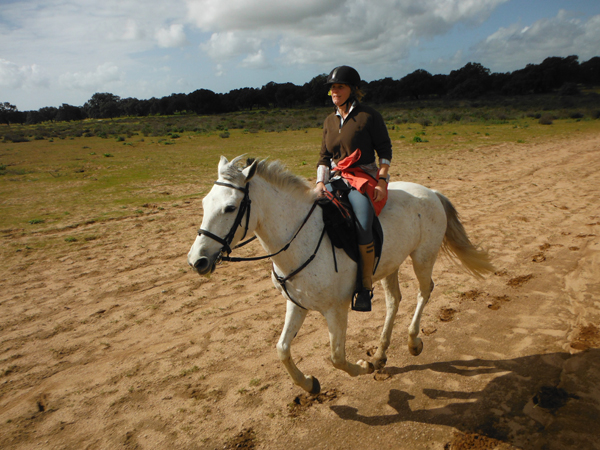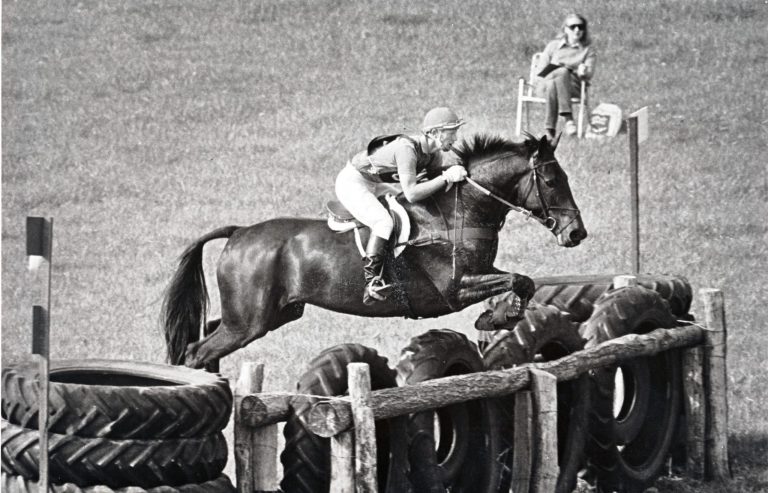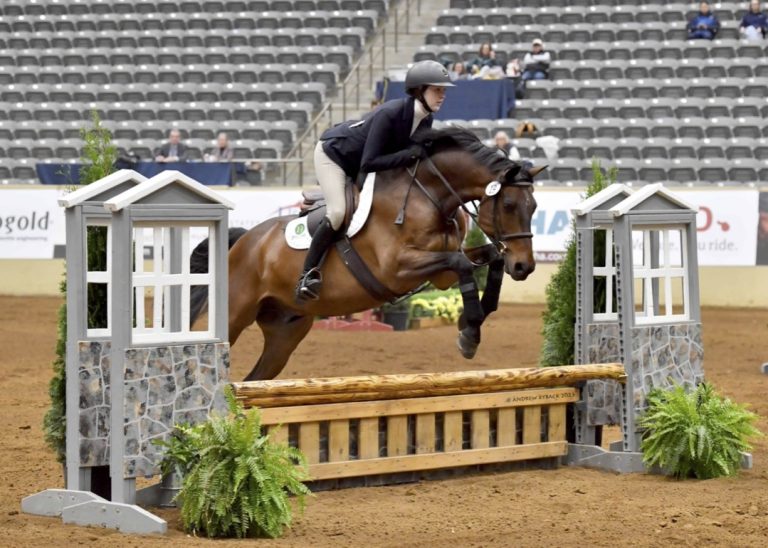My kids had grown up and gone off to college and beyond. I’d given away my daughter’s show horse. My special horse, Flurry, grew old and left for that colorful bridge that in the poem is supposed to make the loss easier but doesn’t. My previously happy farm in Hollis, Maine, was feeling very empty. And I felt empty right along with it.

I still had a pesky blue-eyed pony that bucked, a donkey, her mule son and some chickens that never laid eggs. I also had a beautiful Paint who was greener than I thought. I took a spill from her back, ended up breaking ribs and became afraid to ride. Barely able to breathe or move, let alone work, I didn’t venture far from the couch. That’s when I started reading about horses and fear, how the brain works and how horses help us heal. This research led me to Prescott College’s master’s program in counseling psychology with a concentration in equine-assisted mental health. (Talk about overreacting to a fall!) I’m happy to report that I graduated last December, and that the blue-eyed pony, named Frankie, has turned out to be a wonderful therapy horse.
But I’m getting a bit ahead of myself.
After a time, my ribs healed but my head never really did. My fear lurked around me like a mist that the sun could not burn off. I had lost something, and it coincided with the accident and empty-nest syndrome and all sorts of other stuff that I don’t remember signing up for. One day my daughter said to me over the phone, “Mom, I think you have empty-nest, middle-age menopausal hysteria.” (This was because I was convinced the donkey I bought was pregnant. As it turned out, she was—but that’s another story.)
I so wanted my fearless, ride-like-the-wind self back. So what did I do? I called Active Travel Riding Trips, of Stanfordville, New York. It was a decision that changed my life. Oh-so-many years ago, a riding trip to France had reignited my passion for horses. Could the same magic happen again? This time, I chose to go to Spain to try to find what I had lost—to reclaim my joy, my soul, my laughter.
For eight days and seven nights, seven women, aged 30-something to 70-something, followed our leader, Maria Elena, from the Cortijo de la Corbera, on the boundaries of Doñana National Park in Andalusia in southern Spain, to the towns of Torrequemada and El Rocío. One day we rode through pine forests that looked like something from a dream and then through la Matanza, a private bull-breeding estate, and into la Calera for lunch. Dinner was in Villamanrique. Each day we stopped for aperitifs mid-morning and lunch mid-afternoon. Besides being beautiful riders, the Andalusian people are experts at dining in the countryside.
The Andalusian horses we rode were brave and strong, just like I wanted to be—and I was! They guided me back into strength and confidence. I recovered what I lost when I fell.
The pièce de résistance of our trip came on the last day as the horses galloped through a flooded field. The water splashed up all around us, a hectic wake of sparkling beauty, catching the light of the setting sun. What a spectacular image of power, water, earth and sky. Then a thousand flamingos suddenly rose up in front of the horses, turning the sky from deep evening-blue to light pink. They formed a pink arch that bent from right to left over the glistening, galloping power below.
Eventually we slowed the horses down to a stop and looked at each other and laughed. There was no need to ask, “Wow, did you see that?” Our eyes were as big as dinner plates and our smiles seemed to stretch beyond our faces. The last day of our trip to Andalusia had been a doozy. The appearance of the flamingos seemed to wrap all the other amazing experiences of the last week in a big pink bow. I was ready to return to Maine with my old self back in place, prepared to take on the next chapter of my life.










